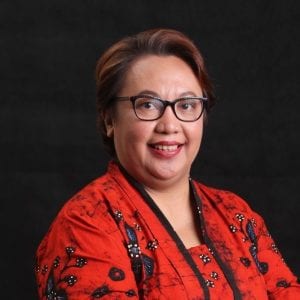
Image by Unsplash
Organized by Department of Communication, Faculty of Social and Political Sciences, Gadjah Mada University
The debate regarding technology and its role in human life is a classic one. Throughout human (r)evolution, technology has frequently created problems and offered solutions, with the reality of technology and its implementation often falling short of its imagination. Today, talking about technology usually means talking about information and communication technology, which has experienced rapid growth and astonishing development. The collaborative efforts of scientists and entrepreneurs from as far afield as Silicon Valley, Bengaluru, and Beijing, have introduced diverse forms of communication, including many 'new' channels.
To imagine the future, thus, one must question what forms of media will emerge in the coming decades and how it will affect human life. In the future, will the mass media offer a solution to such problems as climate change, social segregation, poverty, inequality, and health crises (including viral and bacterial pandemics)? For many, perhaps the future is no more important than the present; indeed, the two are inexorably linked. As such, our understanding of the future of mass media must also take the complexity of current conditions into consideration.
Human social life, as influenced by media and technology, has faced and will face both tangible and intangible threats. Humans' interactions, both with others and with the world around them, have been brought into increasingly unfamiliar territory by dynamic. New forms of social interactions have been introduced and expanded by new technologies and media. The internet has introduced a dual reality, wherein social media platforms have replaced direct personal communication. Though seemingly unconfined by spatial and temporal constraints, these new interactions are actually quite limited.
Social systems have responded to these changes through their own internal mechanisms, employing their own particular forms of adaptation and differentiation. In doing so, the political, economic, cultural, legal, and education systems have used their own internal 'codes'. In the social sciences, it is necessary to find an ideal response. Has social science (including its scholars, institutions, curricula, research, and publication) been able to respond optimally to ongoing technological advances, to future mass media, and to the social complexities created by their interplay?
This panel seeks to discuss the three dimensions of this problem: technology, future media, and the social world. It also investigates the position of the social sciences within the dynamic interplay of these dimensions.
-

Prof. Gerard Goggin
Nanyang Technological University, SingaporeGerard Goggin is Wee Kim Wee Professor of Communication Studies in the Wee Kim Wee School of Communication and Information, Nanyang Technological University, Singapore. Goggin is widely known for his pioneering work on mobile media, culture, and communication. Goggin has also had a longstanding interest in disability, human rights, design, and digital technology. A Fellow of the International Communication Association as well as the Australian Academy of Humanities, Goggin also serves as Secretary-General of the International Association of Media and Communication Research (IAMCR).
-

Dr. Novi Kurnia
Communication Science Department, UGMNovi Kurnia is a lecturer and Chair of the Communication Studies Postgraduate Program at the Department of Communication Science at Universitas Gadjah Mada. Her study interests are Media and Gender, Film Studies, Political Economy of Media, Ethics and Communication Regulation, Studies of Culture and Popular Culture, Media and Community, Media Literacy. Other than being a lecturer at UGM, Novi Kurnia is also a researcher at PR2Media (Regulatory Monitors and Media Regulators).
-

Dr. Lugina Setiawati Sugiono
Universitas IndonesiaLugina Setyawati is a full time lecturer in Department of Sociology in Universitas Indonesia and her fields of teaching are introduction to sociology, the social system of Indonesia, the social impact of development, sociology of gender, women’s role in development, inter-groups relation, and sociology of health.
